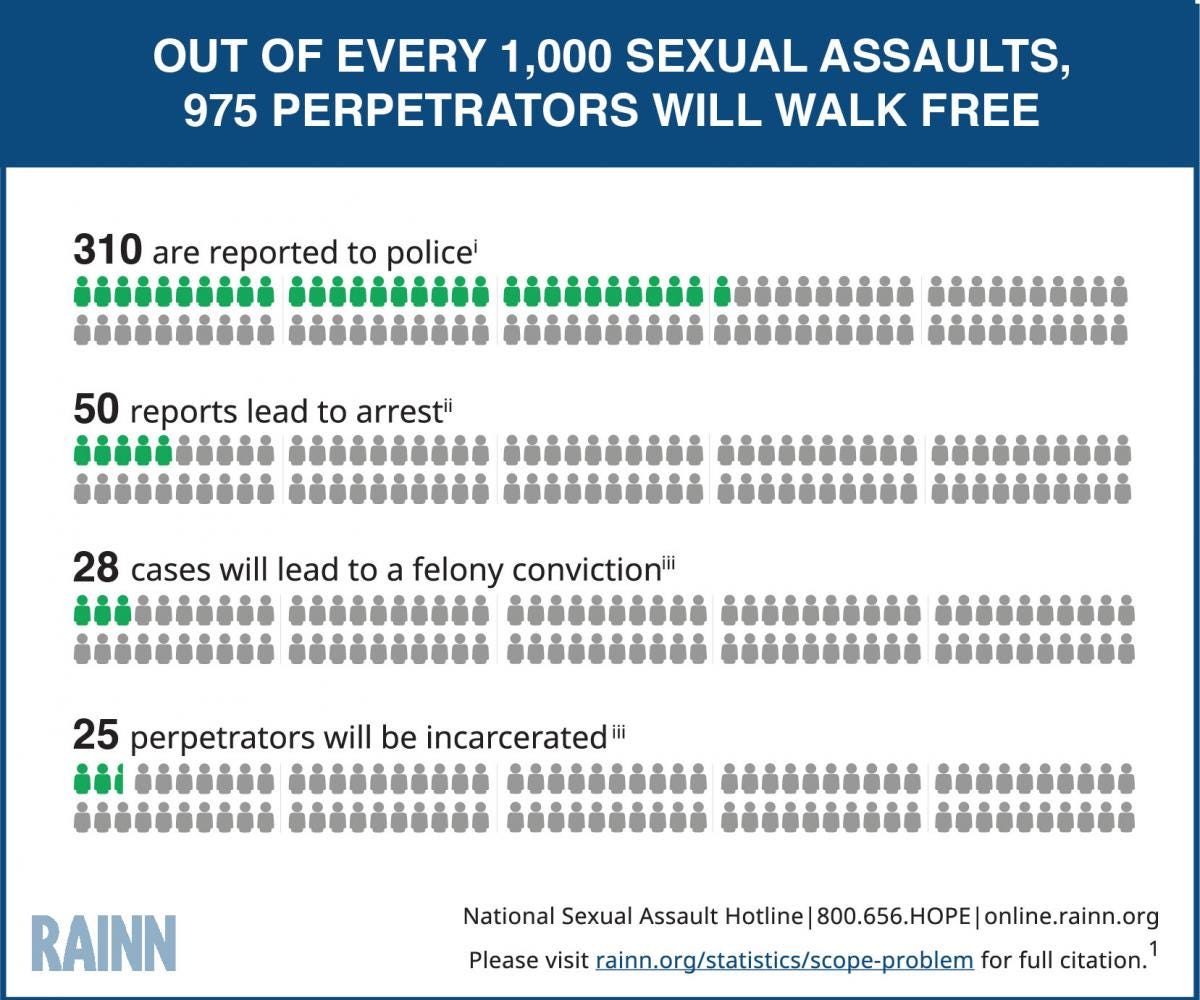
Gilbert Carrasquillo/Getty Images
- Bill Cosby's sexual assault conviction was overturned on a technicality last month.
- Only 25 out of 1,000 accused of sexual assault will receive a felony conviction.
- Cosby's jail sentence of 3-10 years was longer than most accused of sexual assault.
- Visit Insider's homepage for more stories.
Bill Cosby, who was released early on Wednesday, June 30, 2021, after his sexual assault conviction was overturned on a technicality, received more jail time than most accused of sexual assault – most don't even go to jail.
The Pennsylvania Supreme Court sentenced Cosby to three to 10 years in a high-security prison, and as The New York Times noted, Cosby's conviction marks the "first major criminal conviction of the #MeToo era," followed by the conviction of Harvey Weinstein.
However, Judge David Wecht, said the court decided to release Cosby early after discovering a prior agreement that prosecutor Bruce Castor made which impeded on his ability to be charged.
Cosby spent approximately two years and 9 months (sentenced in September 2018) behind bars at the State Correctional Institution Phoenix in Collegeville, Pennsylvania. His team called his verdict and his sentence "not just," according to KTTV. They said also his release is "a big day for the Cosby family."
Cosby accusers and survivors' rights advocates slammed Cosby's early release as a miscarriage of justice.
Jennifer Storm, the former Victim Advocate of the Commonwealth of Pennsylvania, told Insider in a previous interview, "I think what's really important is that the facts of the case are not at dispute here."
"The testimony that Andrea gave, the story that she has said from day one, since 2004, when this happened, has not changed," she continued.
The reality is that Cosby actually spent more time in prison than most who are accused of sexual assault. According to the Rape, Abuse & Incest National Network, or RAINN, over two-thirds of sexual assault cases are not reported to the police, and only 25 out of every 1,000 accused of sexual assault will face time in prison.

Sixty women have accused Cosby of sexual assault, rape, or other sexual harassment allegations. While the courts allowed testimonies from other accusers, the statute of limitations for sexual assault allegations - or deadline for filing a lawsuit - in Pennsylvania meant that many were unable to bring lawsuits against Cosby.
Camille Cooper, the vice president of public policy at Rape, Abuse & Incest National Network, known as "the nation's largest anti-sexual violence organization," said, "If all 60 women who accused Mr. Cosby of assault were able to bring their cases criminally, he would have probably done a life sentence."
"The states need to eliminate the statute of limitations law," Cooper said. "Almost all of the victims that came forward against Mr. Cosby were barred. They were not able to come and have their voices heard in court. The doors of justice were closed to them and that on its face it unjust. Every victim should be able to come forward and have their case investigated; and have their case, if there's enough evidence, prosecuted."
Only seven states put an end to the statute of limitations for felony sex crimes, according to RAINN. These states include Kentucky, Maryland, North Carolina, South Carolina, Virginia, West Virginia, and Wyoming.
Cooper continued, "The second thing that needs to change is we really need accountability and transparency on what's happening with prosecutors and judges. What we saw in this particular case is that we had a prosecutor, Bruce Castor, who made some mistakes." Cooper mentioned that former prosecutor Bruce Castor's deal with Cosby was ultimately the undoing of Cosby's conviction.
"We need to be able to look at judges - look at what they're sentencing, their patterns of sentencing. If we did that, we might be able to see that we might have some judges that are too lenient or too harsh," Cooper added.
Despite the overturned conviction, Cooper highlighted a silver lining out of the Cosby case.
"The other piece you need to know is there's a whole other piece of this case that did not get overturned - and that is the testimony of the other five victims that were able to come in over 404b evidence, or prior bad acts. That means in Pennsylvania prosecutors can bring prior acts that someone wasn't convicted of into the case. That's a really big deal. It's a big win for survivors."
